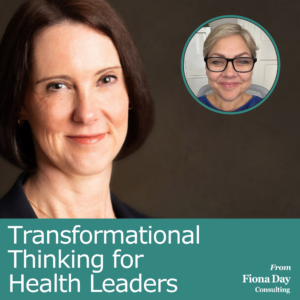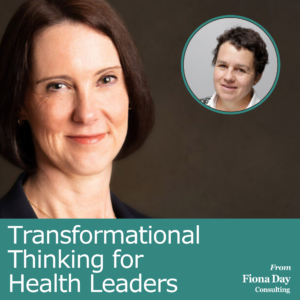Returning to work after a period of maternity leave is usually daunting for most mums, whether they are first-timers or whether they already have children. I work with a lot of professional women and physician mums who are struggling with returning to work after maternity leave or managing their working lives as mothers, and I’ve put together a few tips for anyone who is about to return to work or who has recently returned to work to help make the transition period -and the next few years – easier.
The best start in life for our children
My mother was a doctor, she was one of four women in her year at medical school and was the first female consultant in her specialty – and at the young age of 28. I was born one year before she became a consultant; she was entitled to 3 weeks maternity leave. This was the same for my brother who followed shortly after, and 17 years ago I had what felt like a meagre 18 weeks myself. With the overwhelming public health evidence of the importance of the first 1001 days of life, we know that it is good for our children’s future mental health and development to provide them with the best start in life during this key developmental period, and fortunately most employed women get a reasonable (not ideal) period of paid maternity leave in the UK.
Returning to work after maternity leave
So why then does returning to work for a mum cause so many problems and difficulties? Many women have already made trade-offs in their career and where they were planning to have a family have already chosen careers which are more family-friendly. But of course not everybody has the ability to do this, and in an ideal world all careers would be equally family-friendly because as a society we know the importance of infant mental health and early childhood development. Even within a particular career there are huge differences at team, department, and organisational levels which can make life easier or harder for a new mother. The UK Equality Act 2010 provides a legal basis to protect the employment rights associated with pregnancy and maternity, and the Employment Tribunal courts are there to uphold the implementation of the Act. Few people of course want matters to progress to a formal complaint or legal challenge, so this remains the last resort when things have gone badly wrong.
It’s not all doom and gloom, and the rise of women in the workplace and the changing nature of society has transformed the experience of motherhood and careers for many people, but there is still a huge amount to do at a societal, organisational and team level to support new mums in the workplace.
5 tips to help you with returning to work after maternity leave
- Your priorities may be different. Don’t underestimate the fact that your priorities may completely change as a consequence of becoming a mother. You may have been driven by your career for the last 20 years, and find that it no longer matters so much to you or in the same way. This can be very frightening for some people, especially if their identity is very connected to their career. Be open to the fact that your priorities may change, and that you may feel like a different person. This is very normal, but may make you feel very isolated in the workplace, especially as everybody expects you to come back to work as the same person that you were when you went away. For some people their priorities are now so different that their previous job role, employer, or career are no longer a good fit for them, and that can add a lot of stress and uncertainty. Recognising that this is not uncommon, and being kind to yourself at this point in time is extremely important. It is always better in my opinion to plan an exit from a role, with a sense of what you want to move towards wherever possible, though for some people this is just not realistic and the only solution is a rapid exit.
- Coping with financial pressure. Having a baby puts a lot of financial pressure on you and your partner if you have one, and returning to work and your career may be something that you need to do even if you don’t want to. It is particularly important in this situation to know what you need financially and where you can be more thrifty to take the pressure off yourself. If you are still struggling financially, seek out help early, and if you are really feeling unhappy at work then try to really focus on connecting with the values in your life that the income you are generating its associated with. For example, ‘being a caring parent’ may be a personal value that is strong for you, and even though you are not happy at work, directly relating your employment to your values will help to give you a source of inner strength at this difficult time.
- Are others hindering you? Several of my clients have experienced aggressive behaviour from others following their return to work after maternity leave. This is often a sign of a team being under pressure, or perhaps there is a deeper cultural issue at play. In the workplace, as in life, people are trying to get their own needs met most of the time, and when your needs clash with theirs then that can result in problematic relationships. Recognising the early warning signs of interpersonal difficulties is crucial before behaviours become entrenched. You may not have many cards to play if you are in a junior or insecure position, but you can have your own personal behaviour code that you stick to. This may include, for example, making clear requests of colleagues, not over apologising when you ask for help to meet your needs, trying to understand other people’s needs and views, maintaining an ‘adult’ stance (in the language of Transactional Analysis) in your communication with others.
- Taking care of yourself. This means ‘first putting on your own oxygen mask’. Juggling work and career, motherhood, caring for relatives and friends – and yourself – is a challenging skill to master and will probably require constant and conscious attention from you for many, many years to come. Learning how to do this takes time and effort for most people. Make a commitment to yourself that you will prioritise your own well-being.
- Really enjoy whatever time you have with your child or children. When you are with them, use mindfulness skills to focus on really being present in the moment with them. You will enjoy your interactions with them so much more, even if you are providing care for them at the same time. It is possible to mindfully change a nappy or feed a child and fully focusing will help to ground you whilst you are otherwise busy and rushing around being a working mum. Notice little moments of joy and happiness and really ‘take in the good’ by allowing positive feelings to be fully experienced for about 15 seconds, this is also called savouring and is a wonderful life skill to practice and will help to support you in the years to come.
Dr Fiona Day is the world’s only Leadership Coach with advanced coaching psychology, medical and public health qualifications (MBChB, FFPH, BPS Chartered Psychologist in Coaching Psychology, EMCC Master Practitioner Coach & Mentor) and is in a unique position to help you and your teams to flourish. Fiona specialises in coaching medical and public health leaders, is a coach Supervisor, and an EQA Foundation Award Holder. Get 3 hours of FREE CPD with Fiona’s Health Career Success Programme here. Book a free confidential 30 minute Consultation with Fiona here.









